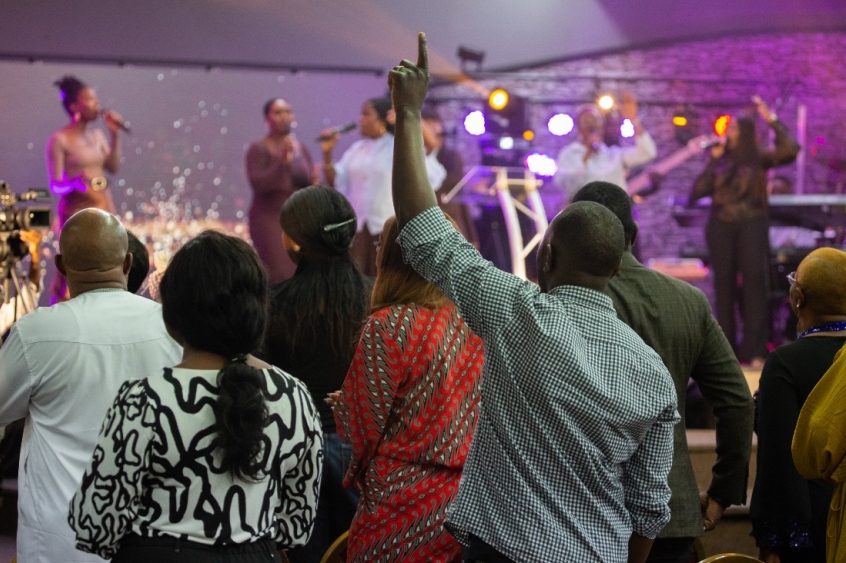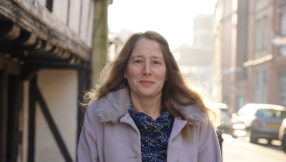
There is a quiet revolution taking place. While many talk about the decline of Christianity in the UK, this has not been the case for African and Caribbean communities. Behind the doors of previously abandoned bingo halls, shop fronts and community centres dotted about the country, there are now thriving churches championing social action while reflecting the diversity of Britain today.
In London, more than half of all churchgoers are from ethnic minorities. People of African and Caribbean origin account for more than two-thirds of Sunday church-goers in London and the Christian Research Association reports that even though membership of churches nationally has dropped 5 per cent, black church membership has grown by around 18 per cent.
It's remarkable to consider the beginnings of African and Caribbean heritage churches in the UK when you compare it to present day statistics. After World War II, there was an influx of Caribbean and African families arriving to the UK. Rather than being welcomed with open arms, these newcomers found that they were not embraced by British churches and began founding their own churches, responding to the continued migration and the need to build a worshipful and diverse community.
This legacy is still a part of their growth today. African and Caribbean churches provide community and help for those in the UK who experience the effects of rejection and racism upon their arrival.
Even more than welcoming with open arms, these churches are shaping the spiritual landscape of the UK and also impacting our societal needs through social action. In many ways a reflection of the diverse cities and towns they are aiming to serve, the growing Black and Caribbean heritage churches are affecting real change in issues that matter to their specific communities.
iCan Community Church is a thriving Pentecostal African and Caribbean heritage church in East London which started in 2015 with under 100 members and now sees over 450 people attend each week. Headed by Bishop Wayne Malcolm, the church is incredibly invested in its local community and is entrusted to promote entrepreneurship and self-employment as a means to keep young people away from gangs.
Half of its congregation is involved in supporting the community as volunteers. Congregants have started a programme for lonely senior citizens, delivering food parcels to the doorsteps of people struggling with the cost of living, and are currently developing a youth academy for young people who have fallen behind in their education because of the pandemic.
iCan Community Church isn't the only one. Trinity Chapel Church, a vibrant dynamic church at the Discovery Centre in Jenkins Lane in the heart of Barking, started with only six people and now has a congregation of over 550 and has planted as many as ten other churches in that time.
The congregation is made up of new converts, as well as Christians from various African nations, and some from the Caribbean, who live in and around the community.
From partnering with local authorities, to reducing gang violence, to tackling issues like domestic abuse and offering free counselling, Trinity Chapel Church has an integral and recognised role in their community as they empower people from all backgrounds to get involved.
These churches are aiming to be lights to those around them, compelled by the love of God to support others. And their outreach doesn't stop with immediate neighbours – this identity reaches well outside UK borders as well.
Both churches partner with Compassion UK, an international child development charity, to financially support the work of local churches in other nations. This means that individuals from these UK churches become a force for change stretching well beyond where they currently live.
Some congregants have even had the opportunity to visit a few of the projects organised by the local church overseas through Compassion UK. Both in their local community and internationally, these UK churches are actively involved in sharing the hope of Jesus while caring for those in need.
Without the financial foundation the establishment of a body such as the Church of England provides, the churches often have to raise their own funds or work with their congregants to think of creative solutions to help bring about change – but they are addressing needs that might closely reflect their past experiences or those of their friends, families and neighbours.
They are growing and affecting change because their attention is facing outwards and, in turn, they are effectively reaching a population that increasingly reflects the diversity that's already within their churches. United by a mission that aligns with the Bible, they feel a responsibility to be a light to the community and share the hope that is found only in Jesus.
These churches are uniting individuals of all ages who are interested in helping their communities, in the UK and beyond. Not just through the social action in their communities and overseas, but through the empowerment and value that children and families experience when they realise they are being supported by people of diverse backgrounds and ethnicities, some similar to their own.
It may be a quiet revolution, but it is a powerful one. A revolution whose impact is being felt in the heart of their communities and in the lives of children and families across the corners of the world. Born out of hardship and rejection, these churches don't close their doors to others, but welcome them, reaching outwardly to help anyone who needs it.
Rona Anderson is Church Partnership Manager at Compassion UK. If you are serving in an African or Caribbean Heritage Church and interested in supporting Compassion, please contact:
• Rona Anderson – Regional Partnership Manager, Caribbean Heritage Churches
• Kenny Akinyele – Regional Partnership Manager, African Heritage Churches













